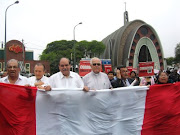| Victims face deportation | ||
| Fraud » They testified against woman accused of scamming undocumented immigrants. | ||
| By Sheena Mcfarland The Salt Lake Tribune Salt Lake Tribune | ||
| Updated:05/10/ | ||
| | ||
| Richard Lemos went to authorities to report a crime, believing he was doing the responsible thing. In return for his efforts, he was given a deportation order. Lemos, originally from Uruguay, is one of 28 undocumented immigrants living in Utah who are being deported after testifying against a woman who allegedly made tens of thousands of dollars scamming people desperate to find a legal way to stay in the country. It is a classic illustration, critics say, of one of the pernicious realities of current U.S. immigration policy: People living here without proper documentation are exploited by criminals emboldened by their target population's vulnerability and fear of authorities. Leticia Avila used her LDS Church connections and the promise of cooperation from a high-ranking immigration official to con $4,000 apiece from undocumented immigrants attempting to get legal visas, according to more than two dozen affidavits from victims. The investigation » When Lemos and others signed the sworn statements, they say an immigration official offered them work visas in exchange for their testimony. Lemos even participated in a taped phone call monitored by officials from the Immigration and Customs Enforcement. But the work visas never came. Instead, four years after they cooperated with the criminal investigation, Lemos, and his wife, Nancy Hernandez, had ICE agents show up at their door and arrest them. The agents told the couple the case against Avila fell apart for lack of evidence and they were being deported. "We have lost our faith in the system," Lemos said. "They never came through with what they promised, and now we have to leave the United States as if we were the criminals." ICE won't comment on specific cases. Spokeswoman Virginia Kice says it determines whether to deport or grant a visa to an undocumented victim of crime on a case-by-case basis. Avila could not be reached and several messages left on phone numbers said to be hers were not returned. No charges have been filed against her. Many of the alleged victims say what is most upsetting is that they were betrayed by someone who preyed on their religious faith. They trusted Avila because she was a fellow member of The Church of Jesus Christ of Latter-day Saints Spanish-speaking branch in Millcreek. In some cases, it was a local church leader who suggested they talk with Avila about becoming legal. "She asked us for our temple recommends. We didn't ever think she was doing something bad," said Edgardo Flores, who moved to Utah with his wife, Sylvia Mendez, and their three children because two of them have Down syndrome. "We were so worried about our children's health, we needed to come here," Mendez said. "[Avila] was from our church. We thought she was a good person because we shared the same faith." The couple, natives of Uruguay, face deportation in July. Offering help to victims » The U.S. Attorney's Office attempts to get undocumented immigrants to testify in similar cases involving con artists offering to provide legal papers for cash. They say they won't look at the immigration status of victims. "We try to do something so victims of crime are not unfairly impacted. We recognize that in many cases people are here illegally, and we see what we can facilitate to get victims of crime to come forward that may or may not ultimately impact their immigration status," said Brett Parkinson, assistant U.S. attorney. But so far, few have come forward in such cases, and the deportation of these families will not bolster the argument for doing so. Salt Lake City police Chief Chris Burbank stirred some controversy earlier this year when he became one of the first and most vocal law-enforcement officials to say he was opting out of a new state law allowing local agencies to participate in enforcing federal immigration law. Burbank said an important reason for his decision was to keep from spreading distrust of his officers in the immigrant community. "If there's a fear that when they come forward, they in fact will be deported, they won't come forward and people will go unnecessarily victimized," Burbank said. 'ICE usually gets involved' » Leonor Perretta, an attorney whose firm is representing several of the South American families being deported in the wake of the Avila scam, says most criminal cases attract immigration enforcement agents. "Sooner or later, ICE usually gets involved," said Perretta. "It makes it so undocumented immigrants tend to not want to report crimes committed against them." And cases in which undocumented immigrants are bilked for promised visas that never appear is an "overly common" situation. "It happens so regularly because people take advantage of the hope for an avenue to apply for immigration benefits," Perretta said. Among several recent cases, Hillmar Ivan Jerez-Lopez was indicted in March for impersonating an ICE agent while promising undocumented immigrants he could fix their status for a few thousand dollars. Bill Barton, a former state lawmaker and member of the anti-illegal immigration group Save Utah, calls it a "sad situation." "There's always these people trying to make money off them, and if they identify themselves and testify, they take a chance in getting deported," Barton said. "But they're here wrongly, illegally, and should be deported or be told to go back and stand in line to become a citizen like so many have before." Several of the swindled families in the Avila investigation came to the country on a visa waiver, meaning they signed away their rights to an immigration hearing before deportation. That's the situation for Lemos and his family, who must move to Uruguay by the end of July. "We have some relatives down there, but we don't know where we're going to go," he said. "We don't have a place to live and we don't know what we'll do for jobs. I don't know what we'll do." |
Http://reddemocratica.blogspot.com
Http://www.caretas.com.pe/2000/1631/articulos/protesta.phtml
Http://www.caretas.com.pe/2000/1612/articulos/debate.phtml
Celebrando 10 anos "On Line"..2008
Keep the candle burning
I have a dream
http://www.stanford.edu/group/King/about_king/interactiveFrame.htm
FORUM TPSIPOL: RED DEMOCRATICA .
Informacion : Http://tpsipol.home-page.org
Http://groups.yahoo.com/group/eleccion
Para enviar un message , enviar a: eleccion@yahoogroups.com
Para suscribirse al Forum , enviar un mensaje a : eleccion-subscribe@yahoogroups.com
Para salir del Forum, enviar un mensaje en blanco : eleccion-unsubscribe@yahoogroups.com
Change settings via the Web (Yahoo! ID required)
Change settings via email: Switch delivery to Daily Digest | Switch format to Traditional
Visit Your Group | Yahoo! Groups Terms of Use | Unsubscribe
















No comments:
Post a Comment